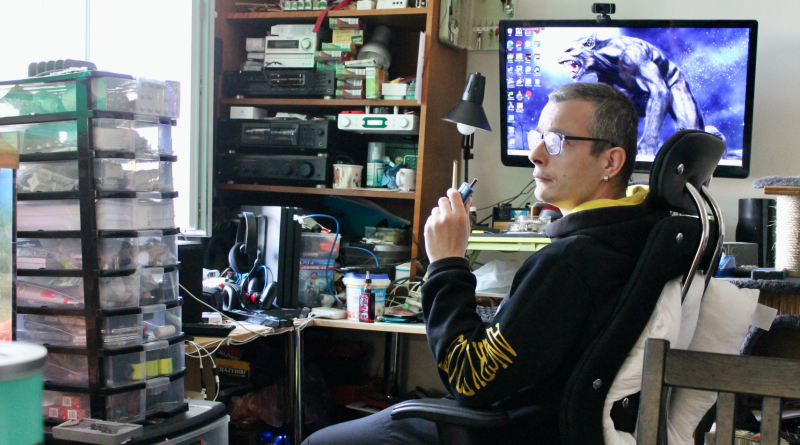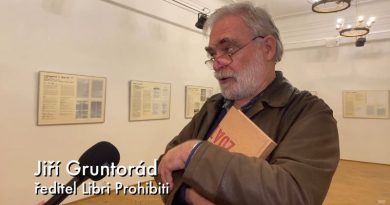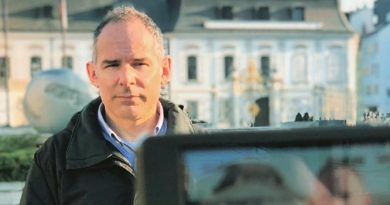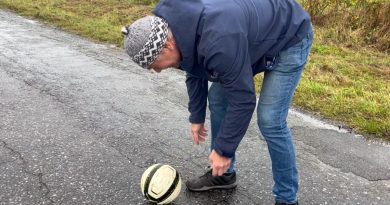Self-determination instead of isolation
Rebecca Herber –
In the Czech Republic, many people with mental disabilities live in institutions. It separates them from others, and the circumstances are far from ideal, experts and those affected say. But the situation in the Czech Republic seems to be changing. Why this is so essential for inclusion.
When Jaroslav thinks of his time in the institution, he thinks of how he shared a room with nine others. How he had to care for a roommate during his epileptic seizures because all the caregivers were on a break at the same time. Or how they tried to deny him his relationship with Kamila.
Now Jaroslav is married to Kamila. He lives in an apartment. He has a job for which he gets paid. What most people take for granted, was not Jaroslav’s reality for a long time.
Jaroslav lives in Hradec Králové. He has an intellectual disability and moved to an institution when he was 17, where he lived for many years. The circumstances were far from ideal. Jaroslav had no privacy, was hardly self-determined, heavily medicated and did not receive any payment for physical labour.
Institutionalization of people with intellectual disabilities is not just the norm in the Czech Republic. It is common throughout Europe. Estimates from the European Commission from 2020 show that over 1.4 million people with intellectual disabilities live in institutions in the EU. The number has not changed substantially over the past decade. The institutionalization approach is criticized from many sides, for example by Inclusion Europe. Milan Šveřepa, the head of the non-governmental organization, criticizes the segregation and isolation of those affected. It also makes them vulnerable to abuse and violence due to a lack of control, he says.
Jaroslav is one of 80 clients with intellectual disabilities that SKOK offers services to. The organization was founded in 2004 to support inclusion and to advocate for an end to institutionalization. Their clients have intellectual disabilities such as autism and Trisomy 21 or psychiatric conditions such as schizophrenia. Part of SKOK’s offer are courses to promote social rehabilitation. The aim is providing realistic experiences to prepare them for a life as self-determined and independent as possible. The courses tackle grocery shopping, cooking or how to stay focused. Social skills and healthy relationships are another focus. They are taught how to voice their needs.
Half of SKOK’s clients have been institutionalized before. The organization is one example of a changing system in the Czech Republic. According to Inclusion Europe, the Czech Republic is one of the few countries in Europe that is initiating change on a large scale. The Ministry of Labour and Social Affairs put it on their agenda to get people out of institutions and to foster more community-based approaches to inclusion. Funds that are allocated to organizations like SKOK are granted on a longer-term basis and turn out to be higher. Thanks to the measures taken in recent years, 3,000 people have already left the institutions, says Milan Šveřepa. Still, he estimates that it will take about ten more years for significant improvement to occur in the Czech system.
Jaroslav moved into SKOK’s sheltered housing after he left the institution in 2015. SKOK helped him to get his legal capacity back that he was stripped of after committing criminal offences when he was a teenager. In the sheltered housing arrangement, several people share a place and a social worker stays with them 24 hours, 7 days a week to offer support, help, and guidance.
After a while in the sheltered housing, Jaroslav could move into his own apartment with his wife, Kamila. This means, they are leading a mostly independent life with as much guidance as is deemed necessary from both SKOK and them. The place is small and cluttered, with wild patterns and lots of electronic devices, cables, and screens. Just recently, Jaroslav and Kamila had to give up a larger apartment. The reason: budget issues.
Jaroslav likes to spend a lot of money on all kinds of things, but by no means everything is useful and necessary. SKOK gives financial advice. Jaroslav is accompanied by social workers for only five hours a week now, for example to go shopping. From constant observation and zero privacy in the institution to a life as self-determined as possible. One of his social workers is Jan Bibus: “Jaroslav is pretty much capable of everything. The issue is that he does what he wants, so we still have to keep a bit of an eye on him,” he says. Jan thinks Jaroslav’s hoarding and extensive spending are connected to how he was not allowed to own many personal things in the institution.
“We treat them like humans – that’s the difference”, he says. To him, the differences in life skills are very perceivable. “People coming from families to us are used to cooperate and trust others. People who have been to an institution are very cautious, and it is hard to gain their trust.”
Jaroslav also works as a cook in SKOK’s bistro, where he finally earns a salary. In his kitchen uniform, he carefully slices raw meat – it will be part of today’s lunch offer. The bistro is rather empty today, it is “Green Thursday”, so the adjoining city parliament is closed. Usually, members of parliament and their staff like to eat at “Bistro u dvou přátel” (which means “with two friends”), so it can get quite busy.
When he talks about his time in the institution, Jaroslav’s voice is quiet and soft. He avoids eye contact and has his hands folded in his lap. He fiddles with his kitchen uniform or pushes his glasses higher. Jaroslav is tall and already has gray hair at 36. The thing that Jaroslav is most proud of, is that he managed to get a second, external job. One which he got without relying on SKOK. He helps restaurants on the main square in Hradec Králové to close in the evening – he carries tables and chairs inside. Generally, Jaroslav says, he and Kamila are doing 100 times better now, a rare smile on his lips.
Jan Bibus, the social worker, believes that unequal salaries are a key driver for ongoing institutionalization. Because of differing funding for institutions and NGOs following more inclusive approaches, staff in institutions can earn significantly more than social workers such as Jan, who actively choose to work in an inclusive NGO. While Jan earns 23,000 CZK a month, institutions pay their staff around 28,000 CZK, he says.
But for Jan, it is more important to feel good about the work he is doing than to earn a higher salary. For him, his clients are “professional friends”. “Open Communication is the key to respect each other. It’s my way to inclusion,” Jan says. Whenever something bothers him about his clients and their behaviour, he addresses it openly, and he encourages them to do the same.
Jan knows that for some people that have very heavy psychiatric diagnoses or show aggressive behaviour, the institutions are the best option. “But they still need to be changed. They need more privacy, single rooms, and just different circumstances.” Besides offering their own services, SKOK also began to consult and train the institutions. Thereby, they want to foster change from within the system.
Photos and text by Rebecca Herber
The article was written in the course Foreign Correspondence under the supervision of doc. PhDr. Alice Němcová Tejkalová, Ph.D.




